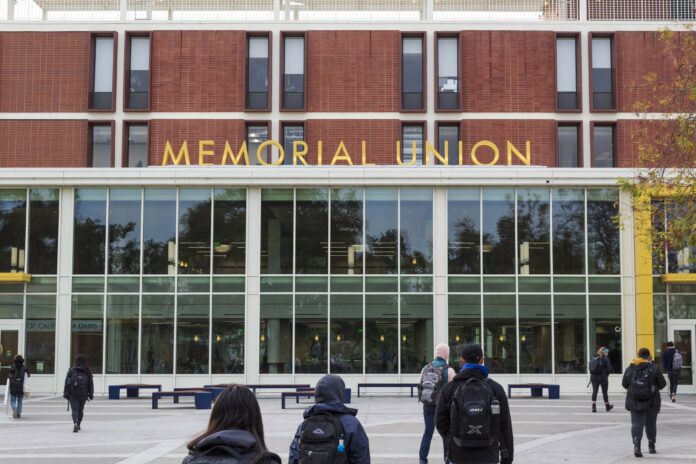The Disability Rights Advocacy Committee and UC Access Now are putting pressure on the UC system to retain remote learning options for students with disabilities
By KATHLEEN QUINN— campus@theaggie.org
As the UC plans to fully re-open campuses in the fall, students with disabilities said they feel like the gains made during the pandemic in terms of accessibility are being undone.
Sarah Thuebet, a third-year communications major and the president of ASUCD’s Disability Rights and Advocacy Committee (DRAC), said that the committee is partnering with the Veterans Committee and the Transfer Re-Entry Center to write a resolution challenging the decision to remove online options. She hopes the resolution will be drafted in early fall and presented shortly thereafter.
“We’re really frustrated by this,” Thuebet said. “Not just for students with disabilities, there are a lot of students who have really benefited from remote learning.”
Sheila Kulkarni, an alumnus of UC Davis and a current graduate student in chemistry at UC Santa Barbara, is now an organizer with UC Access Now, a UC-wide disability advocacy group.
Kulkarni said that since the start of the pandemic, professors have emphasized leniency and allowed students extra time on assignments.
“We should have been doing that regardless,” Kulkarni said. “Where was this energy when people [were] having to prove their disabilities over and over again to the school to get the same grace that’s extended to everyone now because of COVID-19?”
DRAC released a survey to students asking for their opinion on the removal of online options in the fall. Though it has only received approximately 100 responses so far, 60% were in favor of continued remote learning options.
“We want to be able to have that option to be online or not,” Thuebet said.
According to the Student Disability Center (SDC) website, the center is planning for in-person instruction with classrooms at full capacity.
Jennifer Billeci, the director of the Student Disability Center, said that her office will be treating requests for online learning as an accommodation that will be reviewed on a case-by-case basis.
“I would encourage those who feel like an accommodation makes sense for them to contact us and contact us early,” Billeci said. “It’s not going to be an easy accommodation, so early gives us more opportunity to make it effective.”
Richard Tucker, the chair of the Academic Senate at UC Davis, said that outside of faculty with medical exemptions, all courses that were not previously virtual will be held in person, on campus.
“Faculty who have a medical exemption from returning to campus will be allowed to apply for permission to continue with emergency operating status for their courses,” Tucker said. “We’re looking at those applications, but I’m not anticipating that very many remote courses will be added through that process.”
Megan Lynch, a second-year master’s student in horticulture and agronomy at UC Davis and the founder of UC Access Now, sent a “Demandifesto” to the leaders in the UC system in July 2020 in an effort to highlight the challenges that students with disabilities face at the university.
“It was conceived rather naively, perhaps as a short-term thing, because I had faith that as a public institution—that the people we had entrusted with their six-figure salaries to run this place—would actually want to improve these things once it was brought to their attention,” Lynch said.
According to Billeci, the SDC is trying to make it easier for students by maintaining a hybrid appointment model where students can sign up for appointments both online and in person.
“Our goal in life is to make it so easy [to get accommodation] that you forget about us,” Billeci said. “If we are doing it right, we melt into the background.”
Kulkarni said that they disagree with the university’s plan to re-open campuses to full capacity in the fall.
“A lot of disabled, immunocompromised or immunosuppressed people are not going to be able to do that or are going to have to jeopardize their safety and health to be able to contribute to this fantasy of normality,” Kulkarni said.
Though there is some resistance to returning to campus, Belleci said that the current student requests for remote learning accommodations have been few relative to the student population.
“It’s hard for us to gauge how many people might need this in order to continue,” Billeci said.
Lynch said that the pandemic has presented an opportunity to reassess how the education system works and remove barriers that are counterproductive to students’ education.
“Think about all those things that you’d like to see shifted, and think about how disabled people have been dealing with a lot of those issues for a lot longer,” Lynch said. “Definitely don’t let them push us back to ‘normal,’ because that normal was not good for everybody—in fact, it was not good for most of us.”
Written by: Kathleen Quinn — campus@theaggie.org




